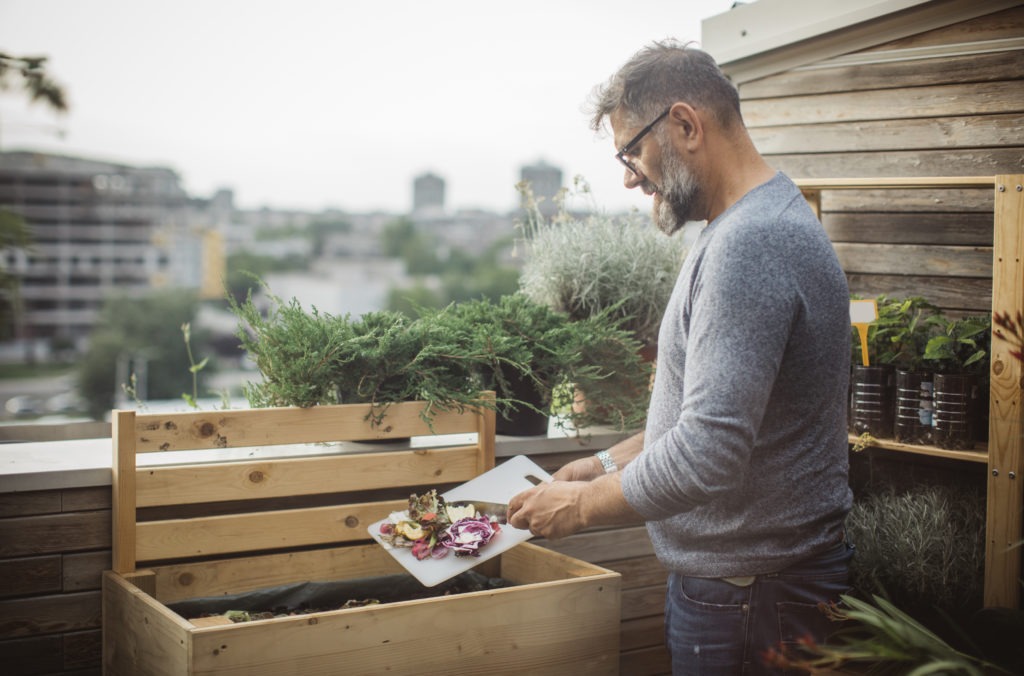4 major solutions to fight plastic pollution
It takes 1 second to make a plastic bag that is used for 20 minutes on average before being thrown away. It then takes 1,000 years for the bag to decompose if it’s discarded in the environment. Because time is running out for our planet, here are 4 great solutions to fight plastic pollution now!
“Only we humans make waste that nature can’t digest.”
So said oceanographer Charles Moore, who discovered the Great Pacific Garbage Patch in 1997.
Plastic is everywhere around us: 311 million tonnes of plastic were produced globally in 2014 and this figure should double in the next 20 years. Nearly half of this production is for single-use, meaning the object or packaging is discarded immediately after it accomplishes its purpose.
Of course, plastic is extremely useful: it’s a practical, lightweight, protective material that preserves our food. But its end-of-life poses major problems on a global level, particularly since less than a third of plastic waste is collected for recycling. This means that disposable plastic items and packaging usually end up in landfills or are incinerated. Due to their small size and consumption patterns, some of these plastic items are abandoned or discarded in the environment, with disastrous consequences on flora and fauna.
Plastic pollution currently represents a 7th continent six times the size of France. Nearly 150 million tonnes of plastic have accumulated in oceans since the 1950s, and 8 million tonnes are added every year—the equivalent of one tipper truck every minute.
Thanks to regulatory constraints and new consumer demands, manufacturers are (finally) making changes. Here are 4 great solutions to fight plastic pollution!
1- Reduce our plastic consumption

The first solution is obviously to reduce our plastic consumption wherever possible.
First, by avoiding overpackaging and choosing the “right” packaging needed to transport or preserve the product. We can also buy in larger quantities and avoid products that are overpackaged for marketing purposes.
When possible, we should also prioritise products packaged in the most ecological materials, or without packaging when they’re available in bulk.
2- Reuse the plastic
France’s 2020 Anti-waste law (loi AGEC) has introduced new prohibitions on plastic products such as cotton buds, straws, and cutlery. This law includes regulations that ban certain disposable products—either made of plastic or another material—that are particularly problematic and/or can be easily replaced by reusable items.
One example is plastic straws, which are now available in stainless steel or glass that consumers can reuse.
People can also rethink their daily habits in the workplace, with enclosed areas where staff can clean and reuse their mugs, water bottles, etc.
3- Recycle plastic
Recycling prevents the waste of natural resources and energy and ensures manufacturers have the raw materials they need.
The French government has set a target for 100% recycled plastics by 2025! Of course, individuals play a role by sorting their waste, while manufacturers choose what goes into their products.
Currently, 1.1 million tonnes of plastic packaging come onto the French market every year: 29% of plastic packaging is recycled, but if we exclude bottles and flasks, this figure drops to 5% (2019 citeo report).
It remains challenging to recycle multi-material products or those with multiple layers because it hard to separate materials. Even when people put these products in the “right” bins, they’re rejected by sorting centres and end up incinerated or landfilled. Researchers are looking into new techniques for separating and sorting materials using new sorting processes at the molecular or even atomic level. These ideas open us promising avenues for innovation.
4- Compost!
Last but not least, composting is a new way to recover our plastic waste! The French Citizen’s Convention for the Climate recently encouraged the development of “compostable biosourced packaging”. This solution offers two advantages: it reimagines plastic’s end-of-life so it never becomes waste, and it replaces fossil-based packaging and products.
The Evanesto® additive makes it possible to transform plant-based plastic into compost, even at home, in less than 200 days—faster than fallen leaves.
By 2023, authorities will introduce a system to collect bio-waste at the source at the European level. This should encourage new sorting behaviours and allow soiled plastics that can’t be recycled to be turned into natural fertiliser.
While there is no miracle solution to the plastic crisis, reducing, reusing, recycling, and composting plastic are all complementary pieces of the puzzle that will allow us to end plastic pollution!
Sources:
Le Figaro, “5 chiffres pour se convaincre de la nuisance des sacs plastiques’, 2014.
Ellen MacArthur Foundation, “The New Plastics Economy”, 2017. http://www.ellenmacarthurfoundation.org/publications.
These articles may interest you
As plastic pollution has emerged as a significant societal concern, numerous international organizations, including governments, unions, industries, research centers, certification and standardization bodies, and others, are actively engaged in developing and adopting new materials, such as biodegradable and compostable polymers.
At the national level, legislation is being enacted to establish dedicated composting systems, with the objective of reducing the use of conventional plastics in single-use products and non-recyclable plastics. These efforts are manifested through standards and labels affixed to products, serving as evidence of their compliance.
Biodegradable bio-based plastics are emerging as a complementary solution to recycling in the fight against pollution. However, in a period where land and water are also becoming critical concerns on a global scale, what impact will the development of biosourced plastics production have on our farmland?
100% biosourced and biodegradable, PLA is one of the first renewable plastics capable of competing with conventional plastics in terms of both performance and environmental impact! Emitting three times less CO2 and already available on the market, PLA could well contribute to reconciling plastics with the planet. Find out everything you need to know about this bioplastic!

